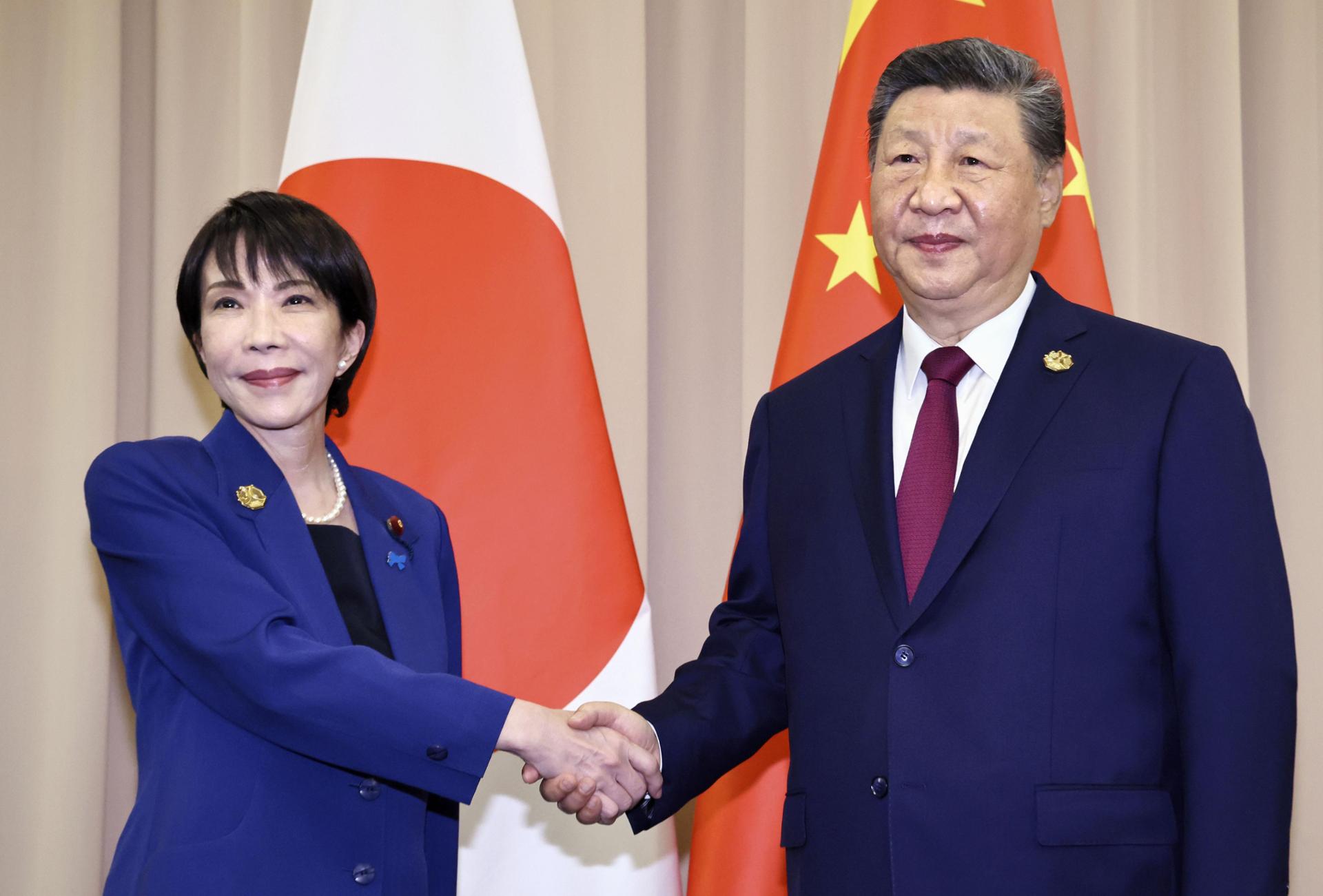Northeast Asia's Geopolitical Storm: China-Japan Tensions Escalate, Drawing in Korea & US Alliances
 South Korea
Geopolitics
South Korea
Geopolitics

Northeast Asian tensions surge as China-Japan feud intensifies over Taiwan & military actions. Korea navigates strained relations amid regional power shifts, re
Northeast Asia on Edge: Escalating China-Japan Tensions Reshape Regional Dynamics
Tensions are dramatically escalating across Northeast Asia, reshaping the region's strategic landscape and drawing international concern. The long-standing rivalry between China and Japan has intensified significantly, with profound ripple effects on neighboring nations, especially South Korea.
The Spark: Japan's Stance on Taiwan
The recent declaration by Japanese Prime Minister Sanae Takaichi, suggesting that Japan's Self-Defense Forces might intervene if China moves on Taiwan, served as a major catalyst. This bold statement, delivered in Japan's National Diet, provoked a furious response from Beijing, which views Taiwan as an inviolable "core interest." The fallout quickly spread beyond diplomatic circles, affecting economic and cultural ties.
China's Retaliation: Economic & Military Pressure
China's retaliation was swift and severe. Beijing suspended imports of Japanese seafood, issued travel advisories discouraging its citizens from visiting or studying in Japan, and delayed the release of Japanese films. More concerningly, these economic pressures were accompanied by recurring military warnings and shows of force in the West Sea, signaling China's readiness to escalate beyond mere economic sanctions.
Japan's Resolve: Towards a "Normal Military Power"
Despite the pressure, Japan appears resolute. Beijing's assertive posture has seemingly reinforced Tokyo's conviction regarding the volatile security environment, fueling political momentum for Japan's transformation into a "normal military power." Discussions surrounding revisions to the Peace Constitution's non-nuclear principles have accelerated, leading to earlier-than-planned updates to Japan’s three core national security documents and even consideration of nuclear submarine acquisition. Public sentiment largely supports this shift, with Prime Minister Takaichi's cabinet enjoying a nearly 70 percent approval rating.
Regional Ripple Effects: Korea's Balancing Act
This escalating feud has further complicated the delicate web of regional relations. Seoul and Tokyo, having only recently begun tentative steps towards mending strained ties, saw this progress falter when Japan rejected an in-flight refueling request from Korea’s Black Eagles aerobatic team. Japan cited the unit's recent training flights near Dokdo (Takeshima), leading to the postponement of a planned joint rescue exercise. Simultaneously, relations between Seoul and Beijing are experiencing renewed friction, influenced by the modernization of the Korea-U.S. alliance and South Korea's potential acquisition of nuclear-powered submarines.
Global Implications and the Shifting Order
The situation in Northeast Asia mirrors a broader global trend where the international order, once underpinned by rules and norms, increasingly succumbs to power politics and confrontation. Should the China-Japan standoff deepen, Beijing might reactivate past measures, such as the 2010 rare-earth export restrictions, which would send shockwaves through global supply chains. Even cultural spheres are not immune, as evidenced by a Japanese petition calling for K-pop group Aespa to be barred from TV due to one member being Chinese.
Korea's Strategic Imperative: Nuanced Diplomacy
For South Korea, a pragmatic and balanced foreign policy is paramount. While maintaining the foundational Korea-U.S. alliance and strengthening trilateral cooperation with the U.S. and Japan, Seoul must actively work to prevent its relationship with Beijing from deteriorating into profound distrust. This necessitates active, nuanced diplomacy to restore communication, rebuild trust, and channel rivalries into a more predictable and stable framework. The Korean government must diligently monitor the evolving China-Japan confrontation and proactively mitigate its potential economic, cultural, and security repercussions. Crafting a balanced diplomatic strategy is indispensable for advancing national interests in this turbulent, power-driven international landscape.